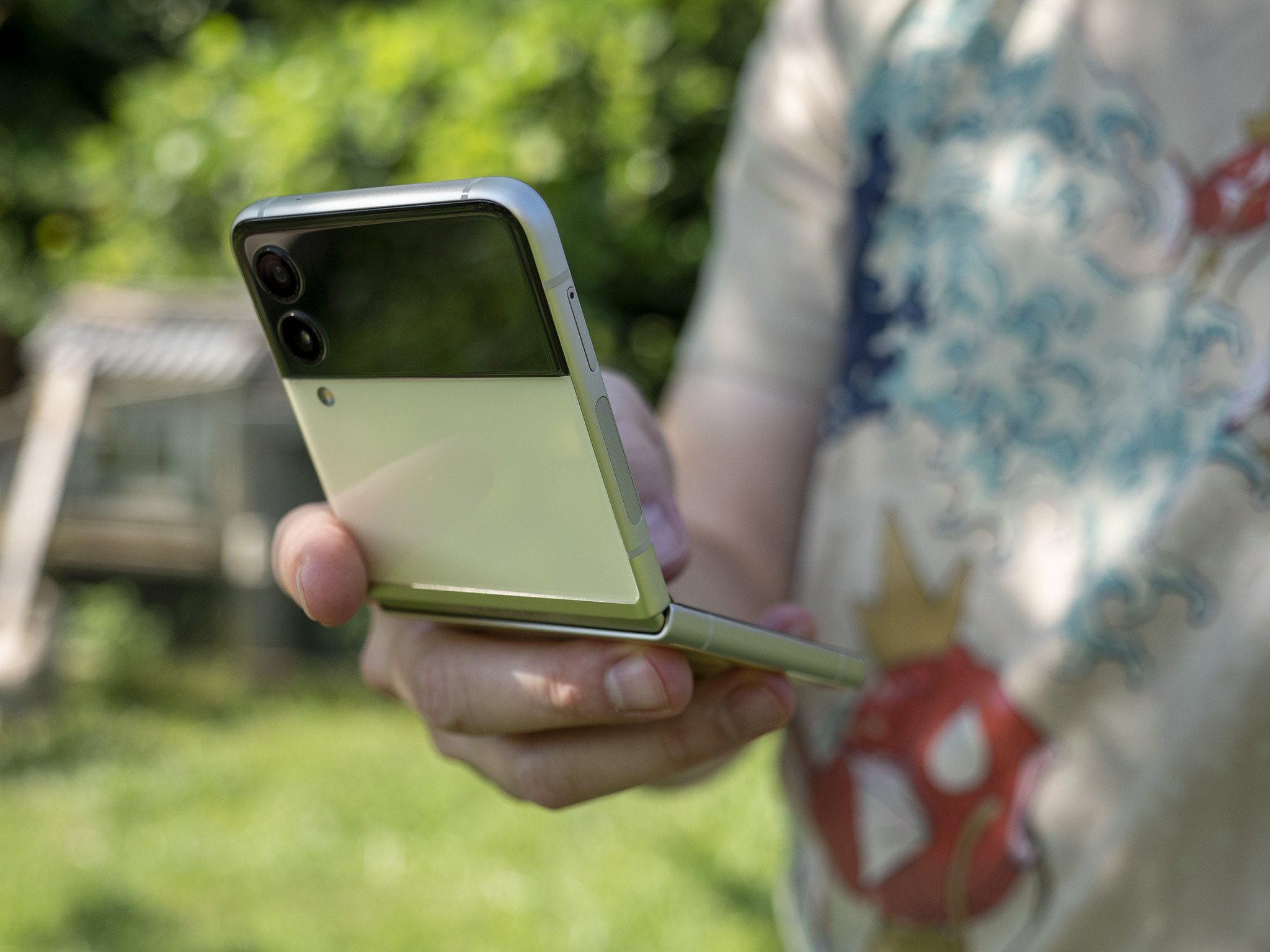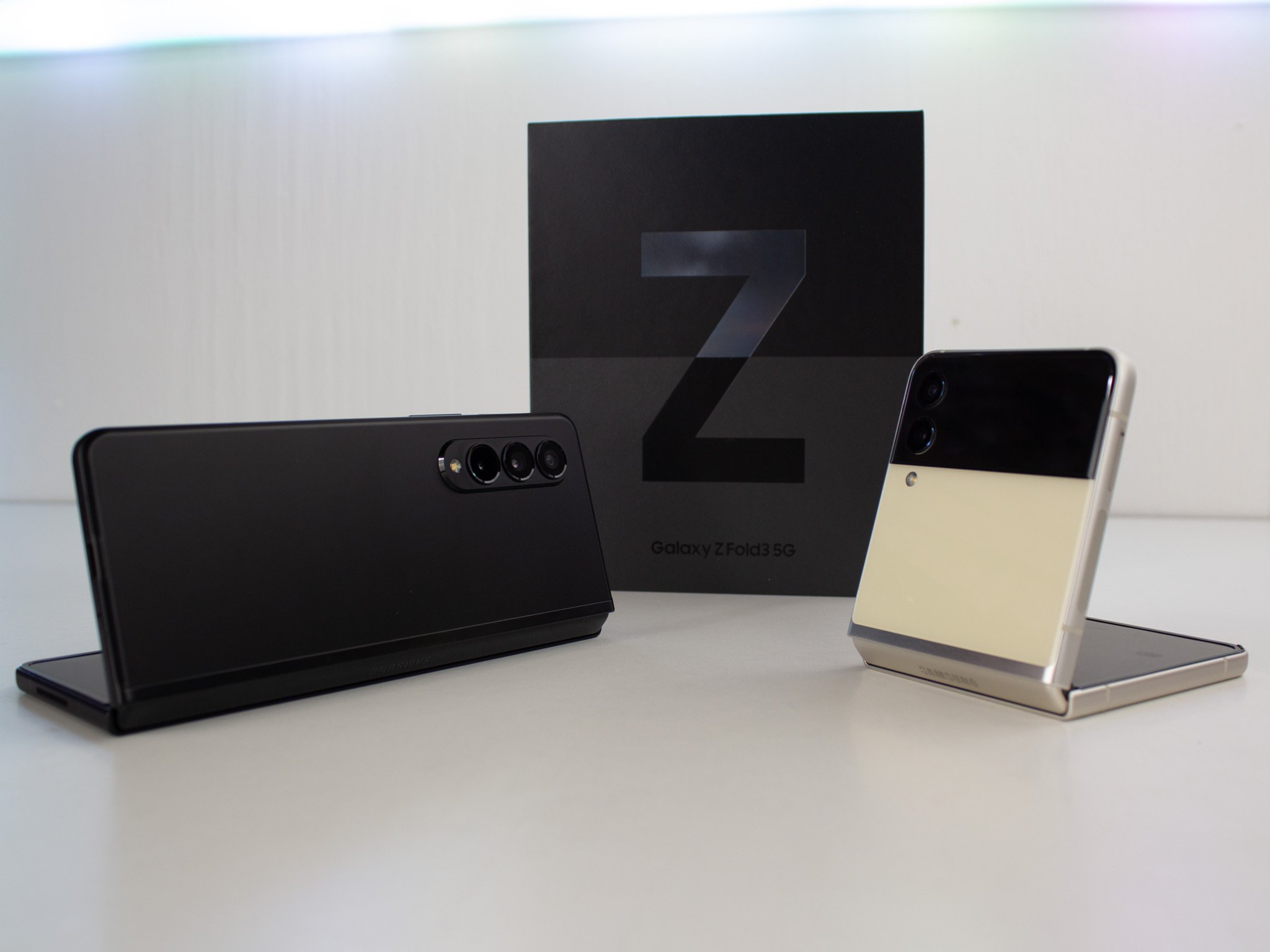Cyber Monday proved you should never recycle your old smartphone for free
OEMs and carriers will take barely-functional phones and lose money to boost sales.
Trading in your old smartphone while buying a new one isn't rocket science. Plenty of people get the newest flagship every year, trading in last year's cutting-edge tech for half (or more) off the latest device. But two years after launch, a popular Android phone might get you $200 off, while a budget phone will get tossed straight into the recycling bin. Three years on, it's barely worth bothering to bring to the store.
But 2021 proved that old phones are a valuable commodity. If you play your cards right, your wimpy old phone could easily score you a brand new phone.
Old phones are a valuable commodity.
We first noticed this trend with the Samsung Galaxy Z Flip 3. As soon as it launched, AT&T offered the $1,000 phone for free with a trade-in, even if the traded phone's market value was much less. A $200 Moto G Power, a 4-year-old Galaxy S8, a 5-year-old iPhone 7 - all of these are "worth" $1,000 to AT&T.
The logic behind illogical tradesThe motive behind this deal steal is obvious. Switching carriers is a pain and plenty of people stick with the same one for years out of habit or laziness. A tempting trade-in on a snazzy new phone can push people out of their complacency, giving a carrier your business for the next decade. And if one carrier is as good as another for 5G coverage in your area, why not switch?
During Black Friday and Cyber Monday, this carrier trend only grew. If you wanted a Z Fold 3, you could get a maximum of $1,050, $1,300, or $1,600 off in rebates and trade-in credit from T-Mobile, AT&T, or Verizon (respectively).
![]() Carriers are just handing Pixels out like candy.
Carriers are just handing Pixels out like candy.
Want a brand-new Pixel 6, the best Android phone of the year? You can pay $600 for one from Google, or get it for free (or severely discounted) from Verizon with the right trade-in. During Black Friday, I noticed you could buy a discounted Galaxy A51 for $100 from Amazon, then hand it to Verizon for $350 off the Pixel 6.
Carriers don't really care about a trade-in phone's true worth. Right now, AT&T will give you $800 off the Pixel 6 Pro for a Galaxy S8, or $35 off the Pixel 6 ... for the same Galaxy S8. Same goes for Best Buy's current Verizon deals on Galaxy S21 phones, where a Pixel 4a, iPhone X, or Galaxy A42 will all save you the same as a 2021 flagship: $800.
There's no rhyme or reason to this; carriers will enhance or enforce market value based on whatever phone they're trying to push. Even though Pixel 6 Pro stock is super low thanks to chip shortages, AT&T and Google really want this superb flagship to sell out quickly, and who are we to look a gift horse in the mouth?
Losing money to make moneyIt's not just carriers playing the loss-leader game. Through Dec. 5, Samsung will give you an unlocked Z Flip 3 or Fold 3 for $100/$250 off, with up to $650/$900 enhanced trade-in credit for the Flip or Fold. This is arguably a much better deal than the ones above, because it doesn't bundle some expensive Unlimited plan or line upgrade with your phone.
Why is Samsung practically giving away two well-reviewed, intriguing phones? Because Samsung wants to bring foldables into the mainstream, and with its mobile business losing ground to Xiaomi, it needs a public sales victory for future growth more than it needs money.
People will willingly spend a grand on a known, dependable brand - your Galaxy S21s or iPhone 13 Pros - but almost no one had used a foldable until this year. Now, Samsung will reportedly ship 3.5-4 million Z Flip 3s by the end of 2021, thanks to its high quality and affordability.
Then there's the Z Fold 3. It made up about 22% of Q3 2021 foldable sales, or about 610,000 units. But DSCC says it'll jump to about 1.33 million sold in the last three months of the year. I promise you, there's no way Samsung comes close to that level if everyone actually had to spend $1,800 on one, no matter how good a phone it is.
Consumer-friendly trade-in offers help boost sales for experimental phones that are too big to fail.
In the upcoming years, companies are going to release other experimental phones that are too big to fail. Phones like the delayed Pixel Fold or Apple's long-rumored foldable iPhone. Or even phones like the LG Wing, which did fail to sell despite a $750-off trade-in offer from Verizon, leading to the shuttering of LG's smartphone business.
Like Samsung, these companies will need high sales to justify the years of labor and millions in R&D costs that went into these phones. So don't be surprised if they work with carriers to offer absurdly low discounts on foldables or rollable phones, in exchange for old phones no one wants anymore.
Bide your time The Z Flip 3 won't be the last trailblazing phone you can get for "free."
The Z Flip 3 won't be the last trailblazing phone you can get for "free."
Up until recently, Android phones' trade-in value was garbage, depreciating twice as fast as iPhones' value. And it doesn't take an analyst to determine why: even Android flagships only ever received two software updates, making their longevity suspect.
Phones you buy today will give you a disproportionate return on investment in a few years.
Now, Android is in the midst of an update renaissance. Google promises three OS updates and five years of security updates for the Pixel 6 thanks to Google Tensor, and Google plans to add Tensor to the Pixel 6a as well. Samsung is offering three OS updates and four years of security updates for all of its phones, while OnePlus, OPPO, and Xiaomi will do the same for their flagships.
Your new 2021 phone will retain more market value in a few years than old Android phones ever did. Even a mid-range phone today could make for a valuable trade-in commodity in 2023-4.
With popular brands fighting to stay relevant with risky, innovative phones, you're likely to see more holiday deal seasons like this, where any old handset can give you a disproportionate return on investment.
That's why, if you're replacing your old phone with a new one without a great trade-in offer, I'd argue that you should play the long game. Keep your old phone safe in a drawer for a year or two and wait for the opportune moment to strike. If it doesn't work out, you can (and should) recycle it if no amazing deal emerges. But by passing up $100 now, you could easily save much more later.
